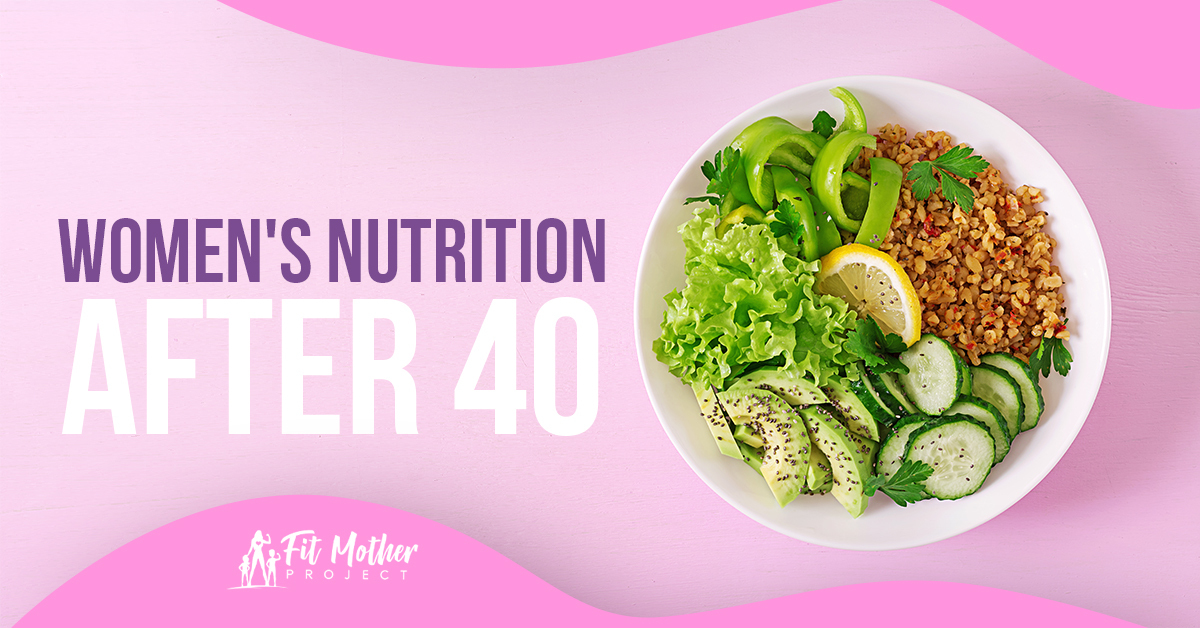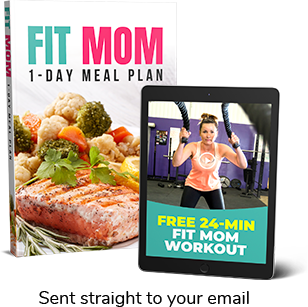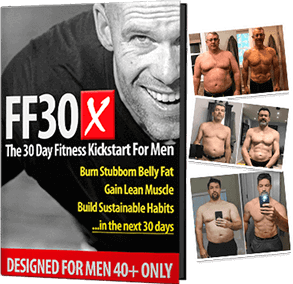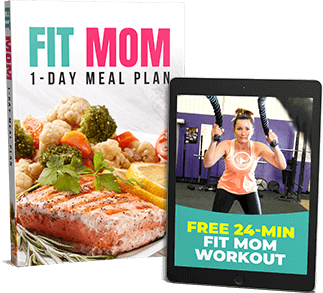Learning to distinguish between myth vs. fact when it comes to women's nutrition after 40 is crucial for your overall health and wellness.
Women's nutritional needs change after 40.
Knowing how to adapt is the best way to maintain a youthful appearance, keep energy levels high, achieve or maintain a healthy weight, and reduce your risk of disease.
Keep reading to learn the truth about women's nutrition after 40!
Does a nutritious, easy, yummy, and fulfilling weight loss plan sound good to you? Here are 7 tips to get you started!
Let us show you how you can start losing weight this week! We'll email you our free meal plan & workout + email coaching.GET YOUR FREE
“FIT MOM” JUMPSTART
(MEAL PLAN + WORKOUT)
Women's Nutrition After 40: Facts
After 40, there are a few dietary changes to be aware of that can optimize your health and overall quality of life.
Examples include:
Calorie Requirements Often Decrease
Metabolism tends to decrease with age in both men and women.
According to the Dietary Guidelines for Americans 2020, women under 40 need 1,800-2,400 calories daily, depending on their specific age and activity level, while women over 40 need about 1,600-2,200 calories daily to maintain a healthy weight.
You might be wondering why your calorie needs decrease the older you get.
Your metabolism tends to slow down, resulting from hormone changes or decreases in muscle mass associated with aging.
Getting regular exercise, including cardiovascular workouts plus resistance training, is one of the best ways to keep your metabolism high and prevent unwanted weight gain over 40.
Learn how to count calories to lose weight with our Calorie Calculator for weight loss!
Calcium and Vitamin D Needs Increase
Calcium requirements increase after age 50 in women, and vitamin D needs are higher after age 70.
However, even after age 40, it's important to get plenty of these essential nutrients in your diet daily.
Doing so keeps your bones strong, reducing your risk of developing osteoporosis and broken bones.
Make sure to get plenty of calcium and vitamin D in your multivitamin supplement.
Aim to consume three servings of calcium-rich dairy foods or plant-based equivalents daily.
Examples include Greek yogurt, low-fat cottage cheese, l0w-fat milk, soy milk or other plant milks, plant-based yogurts, and reduced-fat cheese.
Consider calcium-rich whey or casein protein shakes between meals, or as meal replacements if you're trying to drop weight.
Foods high in vitamin D include egg yolks, fish, vitamin D-fortified plant milks, and vitamin D-fortified breakfast cereals.
You can also get vitamin D from sunlight.
If you're deficient in vitamin D, your doctor can recommend an extra vitamin D supplement in addition to your multivitamin.
Iron Requirements Vary
After menopause when you're no longer menstruating, your iron needs decrease.
For example, the iron recommended dietary allowance (RDA) for women ages 50 and younger is 18 milligrams daily, while women over 50 have an iron RDA of 8 milligrams per day.
If you haven't yet reached menopause and you experience heavy menstrual bleeding, be aware of symptoms of iron-deficiency anemia.
Examples include fatigue, pale skin, weakness, dizziness, headaches, cold hands or feet, brittle nails, and a sore or inflamed tongue.
Take a multivitamin supplement containing the right amount of iron for your unique needs, and take extra iron if your doctor recommends it because of iron-deficiency anemia.
Iron-rich foods include lean meat, poultry, seafood, legumes, iron-fortified breakfast cereals, and spinach.
Need help with your nutrition? This video explains basic nutrition for beginners, giving you 4 actionable ways you can eat healthier.
Omega-3 Fatty Acids are Crucial
Getting plenty of omega-3 fatty acids in your diet daily is a crucial component of proper women's nutrition after 40.
Consuming the right amount of these essential fatty acids offers numerous physical and mental health benefits.
For example, omega-3s help reduce depression and anxiety, optimize eye and brain health, minimize inflammation and other heart disease risk factors, and protect against Alzheimer's disease and types of mental decline.
To ensure you're getting plenty of omega-3-rich foods in your diet daily, add fatty fish to your meal plan (salmon, tuna, herring, etc.).
Eat walnuts, walnut oil, flax seeds, flaxseed oil, canola oil, edamame, soybean oil, algae, algae oil, or chia seeds.
Take fish oil supplements or vegan omega-3 supplements containing algae oils.
Fiber is Important
Fiber is important at any age, as many adults in the United States don't meet daily fiber recommendations.
Fiber needs for women are 25 grams daily for females ages 50 and younger, and 21 grams of fiber per day for women over 50.
Fiber-rich foods to consider include:
- Vegetables: 2-9 grams per cup
- Fruits: 3-8 grams per cup
- Whole grains: 2-6 grams per cooked cup
- Legumes: 10-16 grams per cooked cup
- Nuts: 3-10 grams per ounce
Consider taking a fiber supplement if your doctor recommends it.
Studies show fiber supplementation helps control food intake and can aid in weight and fat loss.
In this video, we discuss how to examine poop and use your poop information to improve your digestion and overall health.
Protein Offers Perks
Getting enough protein in your diet is beneficial for numerous reasons.
This essential macronutrient helps you build or maintain lean muscle.
It can optimize your metabolism and boost satiety, which is beneficial for healthy weight management in women over 40.
Choose healthy protein foods at each meal.
Examples include chicken breast, turkey, organic grass-fed beef, fish, seafood, eggs, tofu, and seitan.
Other foods that contain a significant amount of protein include dried beans, peas, hummus, dairy foods, nuts, seeds, and nut butter.
Protein shakes or bars are also an excellent source of protein for women, but make sure to pick brands containing low amounts of or no added sugar.
If weight loss is your goal, consider replacing one of your meals with a protein shake or bar.
The protein RDA for women, or the minimum daily amount needed, is 46 grams per day.
Eating more protein than this can offer you additional benefits, especially during weight loss.
How much protein do YOU need per day? Watch this video to calculate your daily protein intake!
Added Sugar is Detrimental
While you might have gotten away with eating sweets during your younger years, too much added sugar can pack on unwanted pounds and diminish women's nutrition after 40.
It contributes to your total calorie intake but doesn't help you meet daily nutritional needs.
Unplanned, unhealthy weight gain associated with added sugar can increase your risks of certain diseases, such as diabetes, cancer, and heart disease.
To reduce added sugar in your diet, replace sugary drinks with water, coffee, or tea (avoid diet drinks when possible).
Try fruit or 100% fruit juice in place of sweets and avoid honey, molasses, syrup, and other types of added sugar.
Read the nutrition labels on some of your favorite prepackaged foods, such as granola bars, cereals, ketchup, barbecue sauce, salad dressings, tomato sauce, fruit-flavored yogurt or kefir, and even protein shakes or bars, as hidden added sugar can lurk in these foods.
Supplements are Your Friend
Taking dietary supplements for women over 40 is can improve your overall health and wellness.
Supplements to consider to optimize women's nutrition after 40 include:
- Protein shakes or bars without added sugar
- Probiotics supplements
- Omega-3 fatty acids
- Fiber supplements as needed
- A multivitamin supplement
- Glucosamine for joint health
- Melatonin to optimize sleep quality
- Extra calcium or vitamin D as needed
- Iron supplements if you have anemia
Make sure to check in with your doctor before taking dietary supplements, especially if you're taking medications.
Learn about magnesium supplement benefits as we discuss magnesium for sleep, anxiety, and weight loss.
Women's Nutrition After 40: Myths
If you're over 40, you've probably heard conflicting information about women's nutrition after 40.
Distinguishing between myth vs. fact is important to look and feel your best, reduce your risk of disease, and avoid unwelcome weight gain.
Here are the most common myths we're here to bust:
Weight Loss after 40 is Impossible
While it's true your metabolism decreases with age, weight loss after 40 doesn't have to feel like a challenge.
With healthy lifestyle habits and motivational support in place, weight loss is possible at any age.
Try the Fit Mother Project 30X (FM30X) program, designed specifically for busy moms of all ages, to reach or maintain your goal weight after 40.
The program has helped thousands of busy moms achieve the figure of their dreams.
Choose the best weight loss diet plan for women and start succeeding today!
High-Fat Foods are Bad
Certain types of fat are unhealthier than others, but dietary fat is an essential nutrient your body needs daily to function properly.
It's important for brain health, heart health, and healthy skin, hair, and nails.
Dietary fat also boosts satiety, or feelings of fullness, which helps you avoid overeating during meals.
However, eating the wrong type of fat can increase your risk of high cholesterol and heart disease.
Choose plant-based fats over animal fats whenever possible.
Pick olive oil or avocados over butter, avoid fatty cuts of meat and processed meat, and choose nuts and seeds over regular cheese.
Nut butter, hummus, coconut oil, olives, and fatty fish are also excellent sources of heart-healthy fatty acids.
Carbs Are Bad for You
Carbohydrates have a bad reputation of causing weight gain and diminishing your chance of weight loss after 40.
Eating too many carbs, especially carbohydrates from refined grains or added sugar, can indeed contribute to excess calorie intakes and weight gain — but not all carbs are bad for you.
In fact, the Institute of Medicine recommends adults consume at least 130 grams of carbohydrates every day.
Eating too few carbs, especially long-term, can cause fatigue and diminished athletic performance.
In other words, very low-carb diets can make exercise feel exhausting.
Examples of healthy, fiber-rich carbs that optimize women's nutrition after 40 include whole grains (brown rice, quinoa, wild rice, oatmeal, whole-grain pasta, whole-grain cereal, etc.), corn, peas, black beans, lentils, other legumes, sweet potatoes, and fruit.
Even low-fat milk and plain kefir are sources of nutritious carbohydrates from natural sugars.
Cutting back on unhealthy carbs is an excellent weight loss strategy.
Steer clear of sweets, sodas, other sugary drinks, white bread, white rice, sugary cereals, other refined grains, syrups, and other sources of added sugar.
Avoid fried foods whenever possible.
Here are the most important carbs to avoid for weight loss!
Total Daily Calories Matter Most
It's true that your total calorie intake drastically affects your body weight.
However, not all calories are created equal.
For example, fiber passes through your body without being entirely digested or absorbed, but it helps fill you up nonetheless.
Fiber-rich foods can help you consume fewer total calories, but eating foods high in added sugar tend to give you a quick boost of energy followed by hunger or fatigue.
You Must Count Calories to Lose Weight
Counting calories isn't needed for effective weight loss.
While counting calories is a good weight loss strategy for some women, others simply don't have the time to track every calorie.
Instead, try the FM30X method of weight loss.
You'll divide each plate into sections and fill it with the right amount of non-starchy vegetables (1/2 plate), starches (1/4 plate), and healthy protein foods (1/4 plate).
Consume three servings of calcium-rich dairy foods (or plant equivalents) daily, and add a small portion of heart-healthy fats to each meal.
Additional weight loss strategies often effective for women over 40 include social and motivational support, online health coaching, stress reduction, drinking water before meals, working out regularly, and staying active all throughout the day.
Limit the number of hours you spend sitting down.
Watch this video to understand how food affects your body and take your health to the next level!
Supplements Can Replace Healthy Eating
Dietary supplements can complement any healthy eating plan, but don't use dietary supplements as a replacement for eating nutritious foods.
Getting essential nutrients from food is generally best, while supplements simply help fill in the cracks of what you might miss on certain days.
Supplements can also accelerate weight loss.
Women Aren't at Risk of Heart Disease
You may think of heart disease as the number one killer among men, which it is, not realizing that heart disease is the leading cause of death among women too.
The best way to lower your risk of developing heart disease is to maintain a healthy weight, get regular exercise, optimize women's nutrition after 40 with healthy foods, limit sodium, get enough sleep, and keep stress levels low.
Fasting is the Best Weight Loss Strategy
While fasting, or skipping meals, is often an effective short-term weight loss strategy, it's not necessarily the best approach long term.
If you don't like feeling hungry, fasting drains your energy, or skipping meals causes you to binge eat at the next meal, consider reduced-calorie diets instead of fasting.
Studies show that reduced-calorie diets are just as effective as intermittent fasting for weight loss.
If you're truly interested in fasting, consider less restrictive forms of fasting.
For example, eat only during an 8-hour window of time rather than skipping meals entirely.
Are you healthy? Try these 7 health tests you can do at home!
Now What?
To achieve optimal women's nutrition after 40, begin by making a few of the simple diet recommendations listed above.
Then, try the FREE Fit Mom 3-Day Weight Loss Jumpstart to get on the road toward a healthier life today!
From there you can join FM30X, the world’s simplest health and weight loss program designed exclusively for busy moms!
Erin Coleman is a registered and licensed dietitian with over 15 years of freelance writing experience. She graduated with her Bachelor of Science degree in nutritional science from the University of Wisconsin-Madison, and completed her dietetic internship at Viterbo University in La Crosse, Wisconsin. Prior to beginning her career in medical content writing, Erin worked as Health Educator for the University of Wisconsin-Madison Department of Internal Medicine. Her published work appears on hundreds of health and fitness websites, and she’s currently working on publishing her first book! Erin is a wife, and a Mom to two beautiful children.
Fit Mother Project is the answer you’ve been looking for. Inside the program, you’ll receive: Our Fit Mother 30X Program (FM30X) is the answer you’ve been looking for. Inside FM30X, you’ll receive:If you’re a busy mom who wants to finally lose weight,
get healthy, and actually keep the pounds off for good,
this is the simple program you’ll love sticking to…
If you’re a busy mom who wants to finally lose weight,
get healthy, and actually keep the pounds off for good,
this is the simple program you’ll love sticking to…
LEARN MORE ABOUT FM30X »
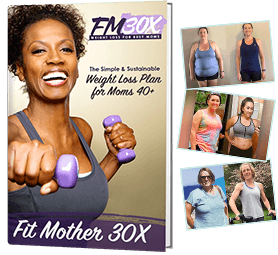
Learn More About FM30X

*Please know that weight loss results & health changes/improvements vary from individual to individual; you may not achieve similar results. Always consult with your doctor before making health decisions. This is not medical advice – simply very well-researched info on women's nutrition after 40.

